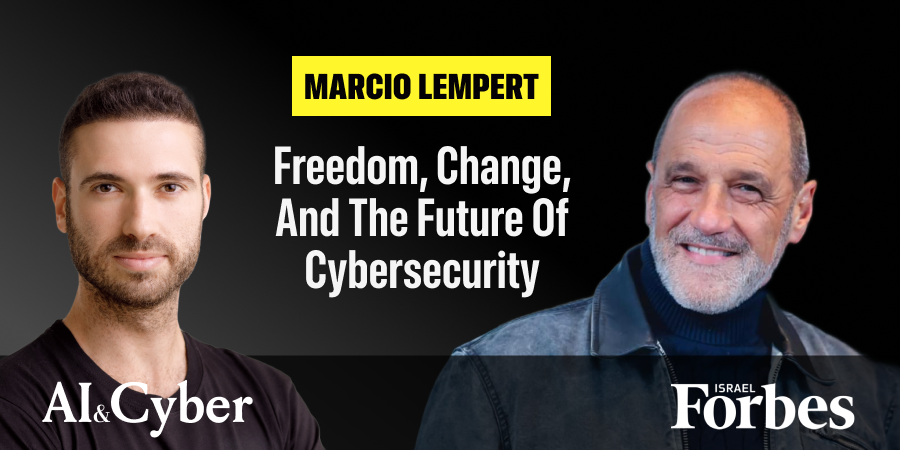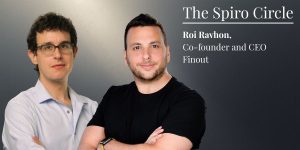When I sat down with Marcio Lempert, Operating Partner at SYN Ventures, the conversation quickly moved beyond cybersecurity and into philosophy. For him, freedom is not an abstract concept but a practical discipline: the distance between a trigger and our response. Citing Viktor Frankl and Stephen Covey, he explained that the more awareness you bring into that space, the more freedom—and responsibility—you have.
That perspective shaped both his professional and personal journey. After decades of leadership roles across technology, sales, and executive positions, including multiple exits, Lempert experienced a personal tragedy that reshaped his worldview. He found himself in autopilot, handling everything for everyone else until he realized he wasn’t taking care of himself. “It’s like the oxygen mask on a plane,” he told me. “You have to put yours on first, before you put on your child, sitting next to you. Otherwise, you collapse, and so does everyone and everything around you.”
Change, he argues, is the constant. “Resilience is how you cope with change,” he said. Whether it’s a geopolitical shock, a personal crisis, or the rapid adoption of AI, leaders must decide whether to let change destabilize them—or harness it to lead transformation. In this sense, entrepreneurship and leadership are inseparable from change. That philosophy feels especially relevant in today’s cybersecurity landscape. As Elik Etzion shared with me, AI has given both attackers and defenders “superpowers”. And as Tsion (TJ) Gonen emphasized, security teams don’t want more alerts—they want solutions that integrate seamlessly into workflows. Change isn’t optional; it’s the environment we operate in.
Now as an investor, Lempert sees AI’s disruptive force up close.
SYN Ventures is a US-based fund and one of the most active early stage cyber-focused funds and within six months, the share of AI in his firm’s portfolio discussions jumped from about 20% to 80%. CISOs want productivity gains but worry about new exposures. Boards want AI differentiation but struggle to measure ROI in a landscape that shifts every six months with new architectures, acronyms, and agent stacks. Lempert distinguishes between horizontal AI infrastructure companies—often ahead of existing budgets—and vertical, use-case-driven companies that map directly to current spend, such as SOC analyst productivity or penetration testing. The latter tend to gain traction faster, while the former require narrative skill and patience to define new categories.
For entrepreneurs, his advice is deceptively simple. First, make time to reflect before stress compounds into failure. Second, find at least one confidant you can speak with freely, without judgment or agenda. And strategically, don’t build “feature companies.” Anchor a big, durable vision, but secure it with short-term use cases that can win the first 10 logos and the first million in revenue. Determination and flexibility, he noted, must coexist. “Know when to burn the ships,” he said, “but also keep a zodiac hidden in the bushes—just in case you need to pivot.”
Lempert’s philosophy distills into a simple loop: awareness creates freedom, freedom enables better responses to change, and good responses compound into resilience. In an era where AI is rewriting the rules of cybersecurity in real time, that loop is no longer abstract—it’s strategy.
Michael Matias is the CEO and Co-Founder of Clarity, an AI-powered cybersecurity startup backed by venture capital firms including Bessemer Venture Partners and Walden Catalyst. Clarity develops advanced AI technologies protecting organizations from sophisticated phishing attacks and AI-generated social engineering threats, including deepfakes. Before founding Clarity, Matias studied Computer Science with a specialization in AI at Stanford University and led cybersecurity teams in Unit 8200 of the Israel Defense Forces. Forbes Israel recognized him early on, naming him to the exclusive 18Under18 list in 2013 and the Forbes 30Under30 list thereafter. Matias authored the book Age is Only an Int and hosts the podcast 20MinuteLeaders.





